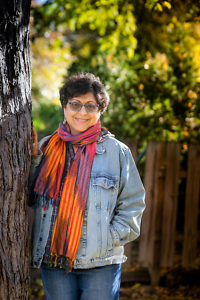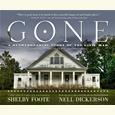A Museum of Revelations
Novelist Thrity Umrigar examines themes of home, family relationships, and social class
In her latest novel, The Museum of Failures, Thrity Umrigar transports readers to vibrant, cacophonous Bombay through the eyes of a protagonist reconciling his troubled relationship with home. Remy is a successful creative businessman who left India for a graduate program years ago and has no desire to return. If it weren’t for the draw of family ties that remain in Bombay, he would happily spend the rest of his days with his American wife and chosen family in Ohio.

After the death of Cyrus, his larger-than-life, incredibly loving father, there is only one person who could bring Remy back to Bombay: his mother, Shirin. Remy’s parents were complete opposites in his childhood memories. Where his father was a seemingly perfect parent, Shirin was prickly, always dissatisfied with Remy, at times abusive in her anger. With constant tension in their luxury apartment, Bombay did not feel like home for Remy long before he got the chance to leave. Bombay symbolizes this tension to Remy, a place that, in his eyes, “always disappointed. He had often thought of Bombay as the museum of failures, an exhibit hall filled with thwarted dreams and broken promises.”
The first half of Umrigar’s novel is a slow burn — Remy’s return to Bombay creates an emotional tumult that he sees as disruptive to his established life an ocean away. But this time, there’s a compelling reason for Remy to fly halfway around the world. He and his wife want to adopt a child, and through a friend, Remy sees a chance for a mutually beneficial adoption. While he’s in town, he plans to visit Shirin, now elderly and in need of care.
When he arrives to an empty apartment, the discovery that Shirin is in the hospital and hasn’t spoken in months motivates Remy to extend his stay. The narrative takes time to build, as readers bear witness to Remy’s interactions with Shirin. His feelings around tending her in old age are complicated by the highly negative foundation of their relationship, but glimmers of positive memories peek through, like their shared sweet tooth and adventures in search of Bombay’s culinary treasures. Between Shirin’s dire state of health and Remy’s care for her, their bond seems to heal.
He sat beside her, stroking her hair. An overwhelming feeling of tenderness swept over him, and it puzzled him, the extraordinary fact that the most ordinary and universal of emotions — love for his mother — should feel so fraught and precious. Her eyes kept searching his face, and he had the strange sensation that she could read every thought in his head.
 Once a family secret is revealed, the narrative picks up quickly, and all the things left unsaid in Remy and Shirin’s interactions to date are filled with revelations. In a deep sleep, Shirin calls out faintly, “Cyloo.” Understandably, Remy assumes Shirin is talking about Cyrus, with “Cyloo” being a common nickname. But the layers continue to unravel — Remy finds a letter written by Cyrus in his final days, and it’s clear Shirin hid it from him. For years, Remy grieved without closure and struggled to accept that his father was gone. To have one more word from him would have been a tremendous gift, one kept from Remy intentionally.
Once a family secret is revealed, the narrative picks up quickly, and all the things left unsaid in Remy and Shirin’s interactions to date are filled with revelations. In a deep sleep, Shirin calls out faintly, “Cyloo.” Understandably, Remy assumes Shirin is talking about Cyrus, with “Cyloo” being a common nickname. But the layers continue to unravel — Remy finds a letter written by Cyrus in his final days, and it’s clear Shirin hid it from him. For years, Remy grieved without closure and struggled to accept that his father was gone. To have one more word from him would have been a tremendous gift, one kept from Remy intentionally.
The contents of that letter unravel Remy’s entire understanding of his childhood. Throughout his life, there was a clear demarcation between good and evil, between hero and villain of the family. Cyrus was the sun, Shirin the storm cloud over their home. The letter completely upends that image. In reality, Cyrus was not the parent he seemed, and Shirin sacrificed exponentially to maintain this image for Remy’s sake.
As this revelation settles and Remy reflects on how he will move forward with this groundbreaking information, he sees Shirin in an entirely new light. In every memory of her angry outbursts, Remy now sees a deeply struggling human in need of support. It doesn’t diminish the wrongs she committed against him as a child, but it does provide the peace of an explanation. It is key for Remy to have this transformation in his own life story as he approaches parenting for the first time, to face buried demons and forge toward a new era with the arrival of a new generation.
His eyes lingered on the street life around him — the fruit carts stacked neatly with piles of oranges and guavas; the sun glistening on the gray fur of the stray cat perched on the hood of a yellow-and-black taxi; schoolchildren dodging traffic, bent from the weight of bulging backpacks. There was more life, more humanity, in one square inch of Bombay than in fifty miles of Columbus, he thought, and suddenly, he missed this city, this hellacious, infuriating, bewildering, beloved metropolis, as if he’d already left.
As the story comes to a close, Remy is peering into a future with the full view of his past. The deep pain in knowing the truth is complemented by the rich joy at the future, creating an honest new chapter. Deep and meaningful, The Museum of Failures challenges us to examine our own relationships with home and family, acknowledging our pain and creating a future that tells a new story.

Sarah Stewart is a writer from Nashville. Her work has appeared in Nashville Scene, She Reads, and The Beet. In her free time, she writes about her journey to every country in the world on From the Aisle Seat.


